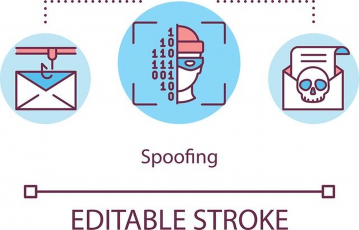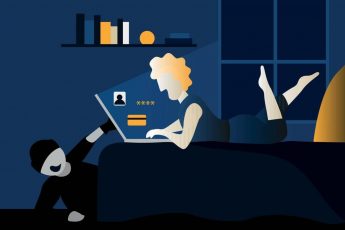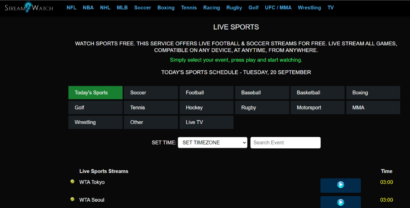Web tracking is pervasive on the internet today.
You have reached our website because you use the internet but guess what? Almost everyone is a victim of web tracking on the internet.
Are you surprised about that, or is that news to you? Well, you should not be surprised.
Several organizations and criminals have deployed web tracking software to track internet users for ages now. They can track you through cookies, spyware, malware, and other tools. Cookies are tiny bits of lightweight codes used for web user tracking, while spyware and malware are malicious computer programs developed to track and spy on users.
Your government, securities organizations, international intelligence alliance such as the infamous Five Eyes, cyber-criminals, jealous spouses, business competitors use these tools to carry out this act.
Internet tracking is on a dramatic rise, and lately, there have been many leaks worldwide. No one is free from web tracking, and even a government is a victim of web tracking deployed by another nation or agency. You get the idea.
News of whistleblowers is everywhere, and no one is free if people can track the government.
Celebrities, who can spend a fortune for their security, are not free from this act either. Hackers have often hacked their cell phones and leaked their private photographs. It doesn’t matter where you are, where you store your data, or the kind of device you use. Your privacy can be compromised if you don’t take adequate steps. As simple as that.
Have you ever heard of the PRISM program? It is alleged that the United States government uses it to spy on millions of people in the USA. You should also know that most of the servers of the biggest tech companies in the world reside in the United States.
Therefore whether or not you live in the USA, your data can also be tracked through the PRISM program. Aside from the US government, other regimes also have secret programs for online tracking.
And guess what, what is the easiest way for governments and any third party to spy on you or track your web activities? The answer is internet tracking.
What is web tracking?
As we mentioned earlier, various organizations deploy web-tracking tools to target internet users’ activities. Internet tracking entails multiple aspects, including mobile, server, network, etc.
However, some organizations and criminals deploy tools specifically meant to track your activities through your web browser. That act is known as website tracking. They monitor your behavior, see what you see, and record your keystrokes, searches, passwords, and so on.
Website tracking is an effective tool digital advertising companies use to project their campaigns. There are lots of marketing firms that carry out website surveillance for their advertising and analytics needs. Did you know that an estimated 79% of websites worldwide use website tracking tools to gather information from internet users?
Have you ever wondered why a search engine would give you search results that match your geographical locations? That is because search engines know where you are. And have you ever wondered why eCommerce stores like Amazon, eBay, Alibaba, and others would give you product suggestions that interest you?
They can do that because they know what you bought before. Also, they have a history of your web searches and your interest. Without website tracking systems, the scenarios above would not be possible.
Is website tracking illegal?

Website tracking is illegal, but some countries and jurisdictions have unfairly legalized some programs that can enable the government to track you.
Some websites would ask for permission before getting your information.
But most of the websites don’t do that.
Sometimes even those that you grant permission to once may continue tracking you without your consent.
Website tracking seriously lacks a lot of transparency because most of the sites go beyond their boundaries and would, in most cases, refuse to disclose the exact information taken from users.
What data can websites collect?
The kind of information collected by websites through tracking depends on the target of the tracking organization. But in most cases, they would collect every possible data from users. They contain sensitive and private information from you, such as:
- Email addresses
- User log in details
- Search preferences
- The URL’s you visit
- Your duration on various websites
- Your location
- Your internet protocol address
- Your location
- Your device type and configurations
- Scripts, applications, and plug-in that are running on your device
- Credit card information and so much more
Despite the rampant spread of web tracking, not all websites collect user information. Also, information gathering is not limited to PCs; smartphones, tabs, and other internet-connected devices are big targets, too.
First-party vs. third-party tracking

There are two types of tracking dubbed first and third-party tracking. First-party tracking is intrusive, but you should be warier about third-party tracking.
First-party tracking can be carried out through cookies when you visit a website.
Some of them would ask for your permission, while others would not. But some first-party tracking is not bad. They manage your session, keep a tab of your selection and cart, store your password and user name, and so on. That ensures that you don’t have to login again whenever your network times out.
They usually die after you log out from a website and activate again when a user revisits the site. However, miscreants can also use first-party tracking to steal sensitive information from you.
Third-party tracking could be hazardous and harmful. It finds dubious means to access your system and track your online activities in the background. Moreover, they are challenging to detect and track your activities irrespective of the website you visit. One of the primary tools used by third-party trackers is Zombie cookies.
These cookies mask their identity and keep tracking your movements for years once they get into your system. They are very resilient, and they would resurface even if you delete them. The use of third-party tracking tools is significantly higher than first-party tracking. The University of Oxford estimates that News agency websites use 40 third-party tracking cookies on every single page.
Why do sites track users, and which websites are tracking you?

There are various reasons why websites may track you. This online tracking largely depends on the respective websites’ business nature. Nonetheless, they may also have other use cases with your data that they might never disclose.
Websites’ main reason for online tracking is to bring in service improvements and enhance user experience. For example, streaming services like Netflix or YouTube track your viewing pattern to suggest videos and content relevant to your interests.
Similarly, eCommerce, news agencies, and other business websites may track you for personalization. For example, search engines would match your searches with results around your geographical location, which is only possible after precise user tracking.
However, websites may even have some other, somewhat shady purposes for user tracking. For instance, some websites track users to monetize the information they get. Then, they sell your information to marketing and criminal agencies for money. Likewise, online tracking from some websites also aids law enforcement agencies in spying on users. While that sounds okay, it’s unfeasible for users in countries with repressive internet policies.
Which websites are tracking you?
Did you know that almost 79% of websites worldwide deploy tracking tools? So what steps are the giant tech companies taking to ensure users’ privacy? Unfortunately, tech companies are among the internet’s top trackers. These include,
- Search engines – Google, Yahoo, and others.
- Social media sites – Facebook, Twitter, LinkedIn, and alike.
- Online stores – Amazon, eBay, and more.
Google has become a behemoth in digital advertising, and tracking is one of its tools to climb to the top of the food chain. Understandably, Google tracking tools make up more than half of the top tracking tools worldwide.
What about the revelation that Google tracking tools account for a whopping 82% of some website traffic if that is shocking? Here is the breakdown of the top tracking platforms on the internet:
- Google analytics makes up about 45.3% of web traffic.
- Google stats make up about 36.7 % of web traffic.
- Google fonts account for 27.5%.
- Google has about 26.5% of web traffic.
- Facebook accounts for 24.9% of web traffic.
- Double click makes up 22.2% of web traffic.
- Google API accounts for 15.4%
- Google ad services make up 10% of web traffic.
- YouTube and Twitter 9.7%, respectively
- ScoreCard research takes 9.4%
- Amazon’s Ad system makes up 8%
- Google syndication and CloudFlare make up 7.6%, respectively
- Google User content takes up 7.3%
- Google photos make up 6.9%
- Amazon CloudFront 6.8%
- Criteo 6.1%
- New Relic takes up 5.5%
How does web tracking work?

Website tracking uses three primary methods: Beacons, fingerprints, and cookies. But the website identifies users through their Internet protocol address (IP), Loin credentials, or unique identifiers.
Websites and services use any of the following to identify you, collate your data, and relay it back to the tracking server.
1. Tracking cookies
Tracking cookies are lightweight applications and are deployed by first or third-party trackers.
They help the website you visit to identify you, which can be very intrusive, especially third-party cookies. Some websites deploy cookies to customize your settings and make your stay on the site more pleasurable.
While others just stalk you endlessly and spy on you. Cookies can enable the tracker to gain access to your digital activities for an infinite number of years. There are two types of cookies which are persistent cookies and session cookies. Session cookies usually die when you leave the website, while persistent cookies stalk you for many years, irrespective of your visited sites.
2. Fingerprinting
Website trackers use the specification and configuration of your browser to identify you. Browser fingerprinting does not store any file on your computer or browser, and it’s a more complex form of digital identification. Some of the information that can be used to identify you through fingerprinting include:
- your system operating system
- browser type and version
- time zone, IP address
- language,
- Screen resolution and so much more.
It combines this information to give you a unique identification.
3. Tracking beacons
Beacons are deployed in the form of tiny images, which are usually 1 pixel by 1 pixel. They appear in your emails and on your browser to get information about you.
A web beacon determines the number of ad impressions, how many websites you visit, the time you spend on the internet, and so on.
Spammers also use it to track your email and know what the contents are. For example, they attach spam emails with beacons, and once you open such mail, the spammer would know that the email address is active and know how many times you opened the email. This information would enable the spammers to send you further spam mail to trap you.
Website tracking and global privacy regulations

The internet could be simpler to use without website tracking tools. But unfortunately, most websites choose to violate users’ privacy through tracking. Criminals seek ways to access your information for identity theft, hacking, and other criminal activities.
Your government is tracking you. ISPs see what you do and where you go on the internet. Advertising companies are gathering your information to sell or deploy marketing ads.
Internet tracking has become a norm for many websites around the world today. As a result, organizations collect enormous amounts of data from users for present and future use.
Is the regulatory body doing enough about it, and is website tracking legal? Most are illegal, while some are legal, but fortunately, regulatory bodies are stepping up to the plate to do the needful.
Website owners must follow older and new guidelines and policies when dealing with internet users’ data. But clearly, the approach and enforcement need to be ramped up significantly.
Website tracking and GDPR / CCPA
According to the GDPR (General Data Protection Regulation) guidelines, every website must request opt-in consent. The web user must consciously opt-in before the web owner can collect any form of data from the user.
The website owner must also tell the user how data gets collected and what it intends to use the data for. Furthermore, websites should not pre-check banners or checkboxes. Instead, the website must allow the user to read and tick those boxes by themself.
And lastly, the user should have the opportunity to consent to a specific type of data to be collected by the site. If users agree to share their information with the website, there should also be an explicit opt-out mechanism.
The California Consumer Privacy Act (CCPA) is a data regulatory body that also requires websites to clearly state the data it intends to collect from users and provide mechanisms to opt out. These rules are good, but unfortunately, there is no enforcement, and websites default without consequences.
How to avoid being tracked on the internet

You should find effective ways of protecting your online activities because internet tracking has become widespread today. There are lots of tools that are being deployed to track online users.
Unfortunately, some of the tools are invisible scripts that are almost impossible to detect. Some are stubborn and intrusive cookies which can run on your system for many years. In addition, there are fingerprinting tracking, tracking beacons, and others.
So, while achieving 100% immunity against online tracking is difficult, you can still reduce it to a greater extent with a few best practices.
1. Delete cookies and cached data
Cookies are the prime means of user tracking today. Whenever you visit a website, these cookies get stored on your device with or without your consent. Similarly, cached data facilitates user tracking, besides assisting with the fast loading of web pages. So, to prevent web tracking, the first step is to delete cookies and cached data from your devices’ web browsers.
2. Block image tracking
Image tracking is another option through which service providers trace users. These aggressive images often appear in promotional and marketing emails. But sometimes, websites also display such images embedding tracking scripts. Using a powerful anti-tracking add-on (discussed below) can disable such scripts. Whereas, for emails, users can adjust their email settings to display images only after your permission.
3. Use third-party anti-tracking browser extensions
One of the ways to protect their privacy is through the use of browser plug-in extensions. They help keep tracking activities at bay but are not very useful because they would only work against third-party tracking tools.
For example, as you know, Google is a giant advertising firm, and one of the significant ways it collates data is through tracking. Therefore a Google tracking blocker extension such as Ghostery would not work against the Google tracker. Likewise, deploying Mozilla add-ons would also work against third-party trackers but would not work against Firefox trackers.
So in one way, you may be blocking third-party trackers, but Mozilla and Google would still steal swats of data from you for commercial purposes. But, of course, this applies to other commercial browsers as well.
4. Use a private web browser
While web browsers like Google Chrome are notorious for user tracking despite all privacy implementations, some service providers still care about your privacy. Hence, they have developed secure or private web browsers like Brave, Vivaldi, and Tor, to let you enjoy internet freedom without fearing to track. All you need is to ditch the current web browser for one of these for daily browsing. You’ll eventually notice those sneaky trackers missing out on tracing you anymore.
5. Use a VPN

Using a VPN is one of the most effective methods to prevent any organization or individual from stealing your private information online.
VPN is an acronym for Virtual Private Network. It encrypts your internet connection and also creates multiple physical networks for your sessions.
VPNs are designed to be robust and prevent even your ISP (Internet service providers) from spying on you. A VPN masks your IP address, which makes your online actions untraceable.
Once you are signed to a quality VPN service and have your VPN on, you can securely shop, use your email application, log into your accounts, pay bills, and carry out endless activities privately.
People think that marketing companies, Government agencies, and cybercriminals are the only ones responsible for online tracking. You should know that your ISP sees everything you do on the internet. Without a VPN, your ISP can monitor and see your entire browsing history.
Often, ISPs are affiliated with other agencies. As such, they can share your information with the government, marketing companies, and other fraudulent organizations or individuals.
A virtual private network can help you in the following ways:
- Protect your browsing history: Online trackers can keep tabs of your browsing history for years. Without using a VPN, hackers may steal your searches, medical information, IP, device information, card details, documents, etc. They can use this information for targeted ads, identity theft, hacking, and many more malicious acts.
- Your Location: A VPN would help change the IP country online, which is very important for your security. Your IP doesn’t give up your location only but can allow anyone to access your activities on the internet. A VPN connects you to the internet while masking your IP or asinine a different IP address to you. A hidden IP would ensure anonymity on the web and prevents tracking tools from gaining access.
- Browsing activities: You never know you may be a candidate for the government or other agencies tracking surveillance schemes; therefore, you should opt for a VPN. A VPN can help you maintain internet freedom and have peace of mind all the time.
- Your Devices: VPNs protect you against online tracking but also secure your entire device. Remember, there are lots of intrusive and malicious programs and applications on the internet. You can never tell when a Trojan, spyware, or other malware will gain access to your device. A VPN protects your mobile device, desktop, laptop, and tablet from malicious attacks.
Can I just enable the “Do Not Track” feature?
Some web browsers have “incognito mode” and “do not track” options that give you a private browsing session once you enable them. However, it merely protects you from very few tracking sites and leaves you significantly vulnerable to others.
Your browser may send a “do not track” request to websites, but they fail to honor it in most cases. Instead, they would keep on tracking you.
Final notes
Internet tracking has many challenges, and users must find effective ways to protect their online activities. Web browsers have significantly ramped up their game by adding tracking protection, but it is still not enough because hackers continuously improve the tools they use.
Moreover, web browsers can as well track your online activities. Many government schemes mandate tech companies to hand over users’ information to the government, such as the USA’s PRISM program.
In essence, you cannot afford to take web tracking for granted today. The best way to avoid being tracked by your government, security firms, tech companies, ISP, and cybercriminals is through the use of a VPN.
However, not all VPNs can get the job done for you, and it is essential to only opt for a reputable VPN. There are hundreds of VPNs on the internet, but not all of them keep to their promise. So, when choosing a VPN, you must go only with a reliable VPN that offers protection for various platforms, is easy to use, has a robust encryption algorithm, and boasts a large pool of servers worldwide.






